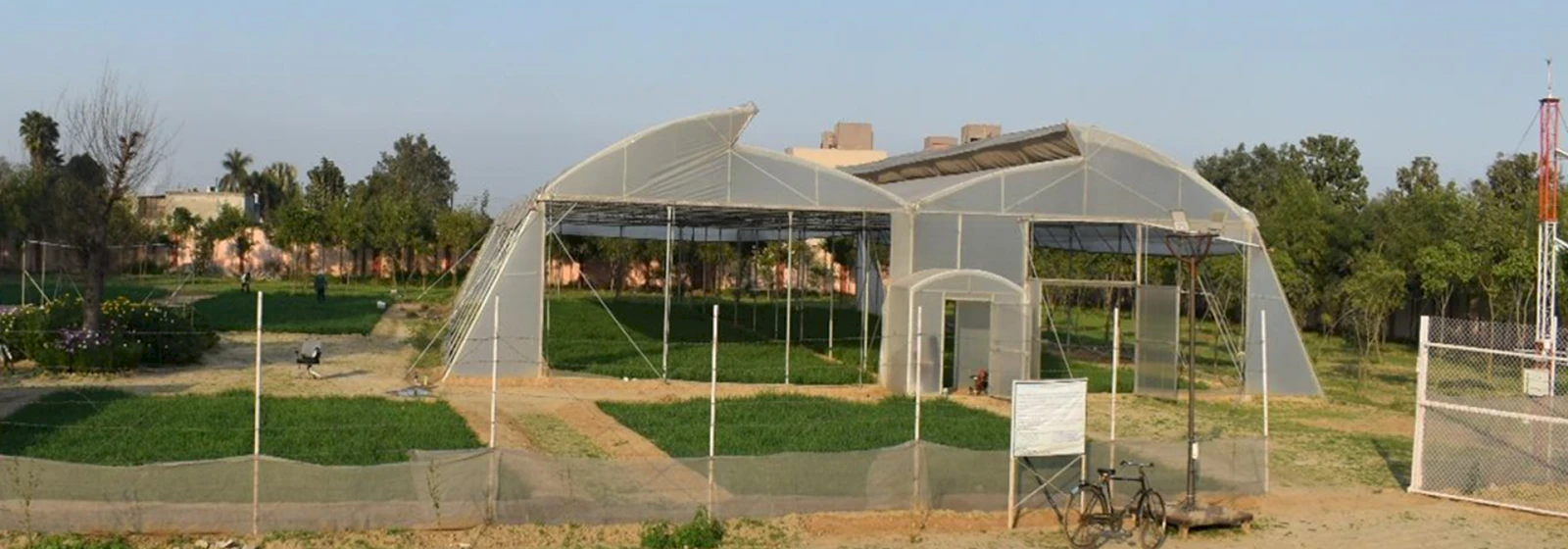Agricultural Water Management Laboratory
Agricultural water accounts for more than 85 % of the total fresh water usage in India and more than 70% globally. Considering the present status of stressed fresh water resources, which will only exacerbate in the near future, proper planning and management of the agricultural water is being felt like never before. In this context, the vision of the lab is:
- Improving water use efficiency in agriculture
- Develop tools for water-efficient scheduling of irrigation
- Accurate estimation and mapping of spatial agricultural water demand
- Prediction of agricultural water demand for future scenario of climate change
Domain knowledge is being combined with the emerging technologies of remote sensing, IoT, and data mining tools. The main objective of the research is to come up with solutions that can be implemented for reducing the effects of the water crisis on Indian agriculture. The laboratory possesses extensive agricultural crop experimentation facility that equipped with drip irrigation system and extensive research equipment facility for the monitoring of crop and soil parameters.
Laboratory Resources and Infrastructure
Agricultural water management field laboratory (Image 1) has been developed at Shiv Nadar Institution of Eminence, Delhi-NCR that includes an extensive research facility for experimentation on agricultural water management.
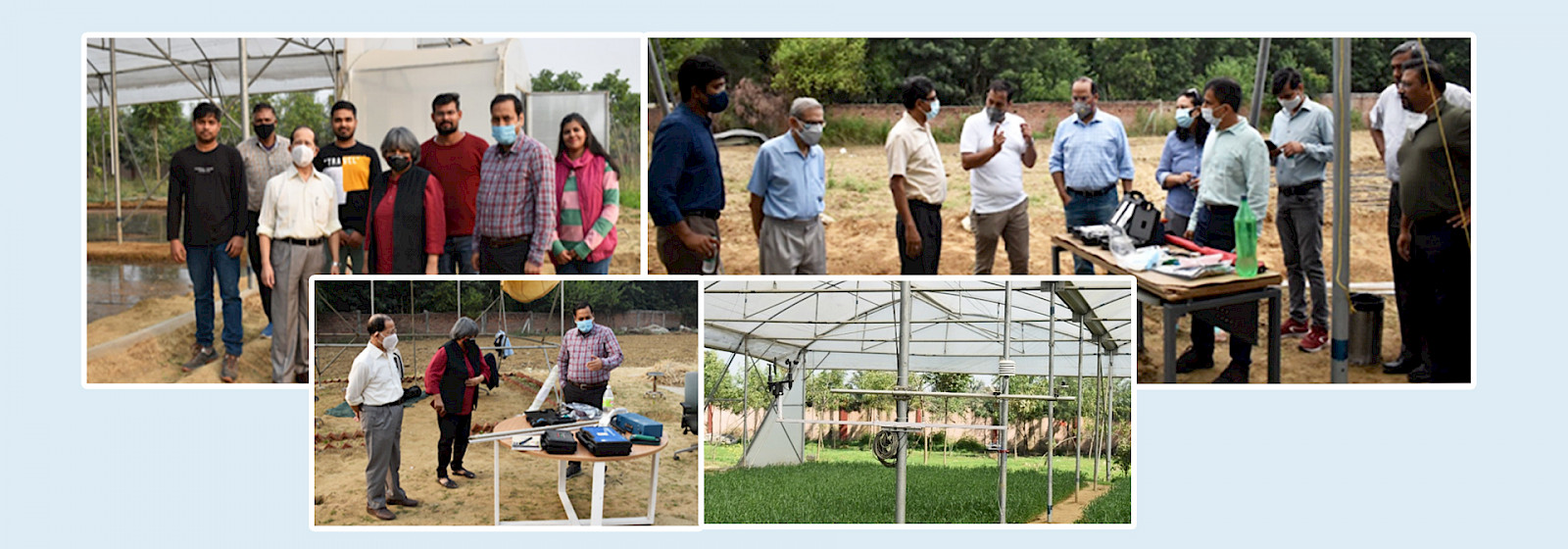
For research studies on agricultural management, water efficient irrigation scheduling methodology and improving of the water use efficiency and water saving in Indian agriculture, the experimental field laboratory has agricultural field plots of a combined area of ~ 1100 m2. The laboratory is equipped with:
- Drip irrigation system is being used to experiment regulated deficit irrigation (RDI) regimes with a goal to improve the water use efficiency and water saving in agriculture
- Soil testing apparatus using which the nutrient availability in the soil is determined. Levels of macro and micro nutrients as well as the organic carbon content and pH are determined.
- Automatic weather station is being used for the constant monitoring and logging of meteorological parameters such as air temperature, air humidity, wind velocity, solar radiation and rainfall. These meteorological parameters affect the agricultural water demand.
- Research-grade equipment for the regular monitoring of crop and soil parameters. The equipment facility is briefly discussed in the next section.
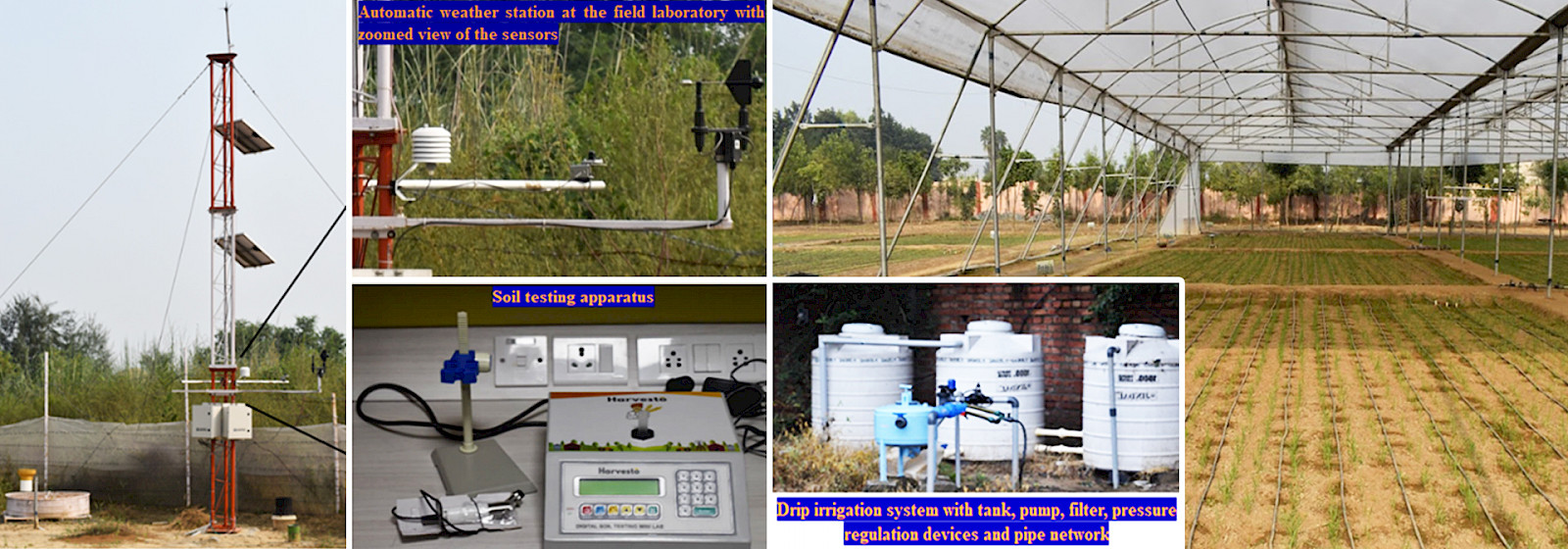
Equipment Facility
Different equipment are being used to measure and record the soil and crop parameters in the crops grown in the experimental field plots using different the water-saving RDI regimes. The facility is equipped with field research equipment such as:
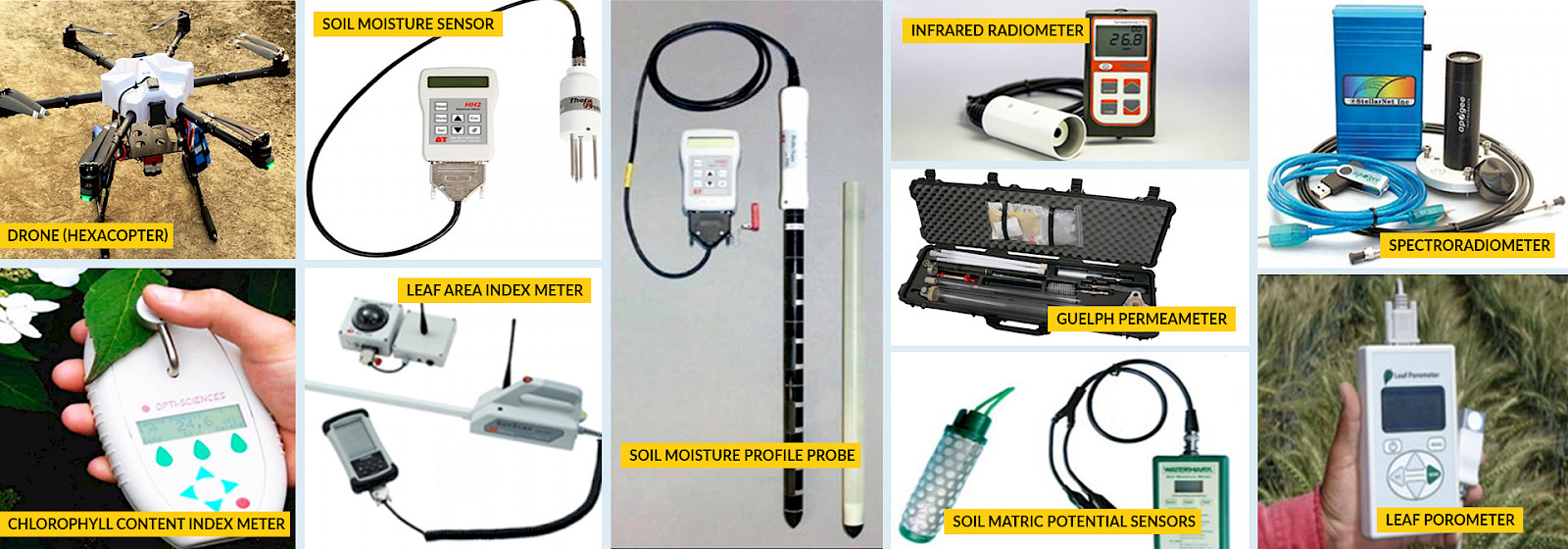
Images From the Lab
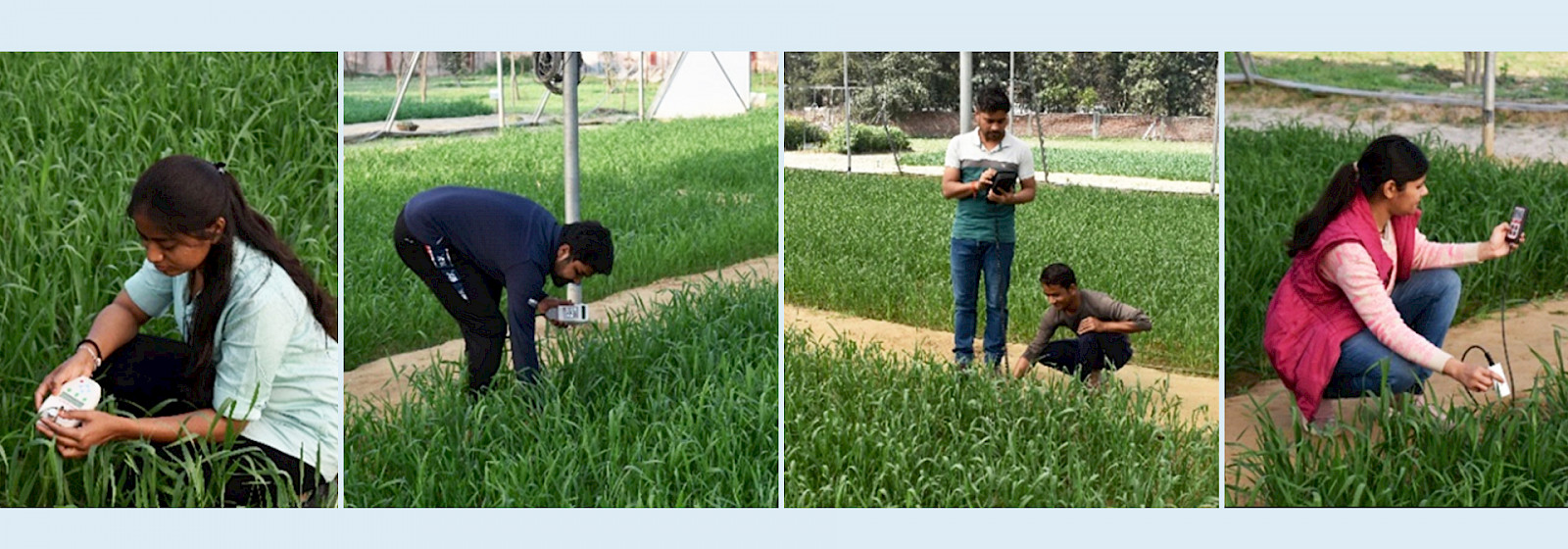
Doctoral Research Students
- Aditi Yadav (July 2020 - present)
- Manoj Yadav (August 2021 - present)
- Ghanshyam Giri (August 2021 - present)
- Apoorva Yadav (August 2022 - present)
- Adwait Singh (January 2023 – present)
Undergraduate Researchers
- Sanjana (Opportunities for UG Research 2023-24), B. Tech., Civil Engineering, 3rd year
- Akanksha (Opportunities for UG Research 2023-24), B. Tech., Civil Engineering, 3rd year
- Chinthamaneni Sriyodh (Opportunities for UG Research 2023-24), B. Tech., Civil Engineering, 3rd year
- Likith Muni (Opportunities for UG Research 2023-24), B. Tech., Civil Engineering, 2nd year
- Shivam Babu (Final Year Project 2022-23), B. Tech., Civil Engineering, 4th year
- Sriram Manikyala Theerdh (Final Year Project 2022-23), B. Tech., Civil Engineering, 4th year
